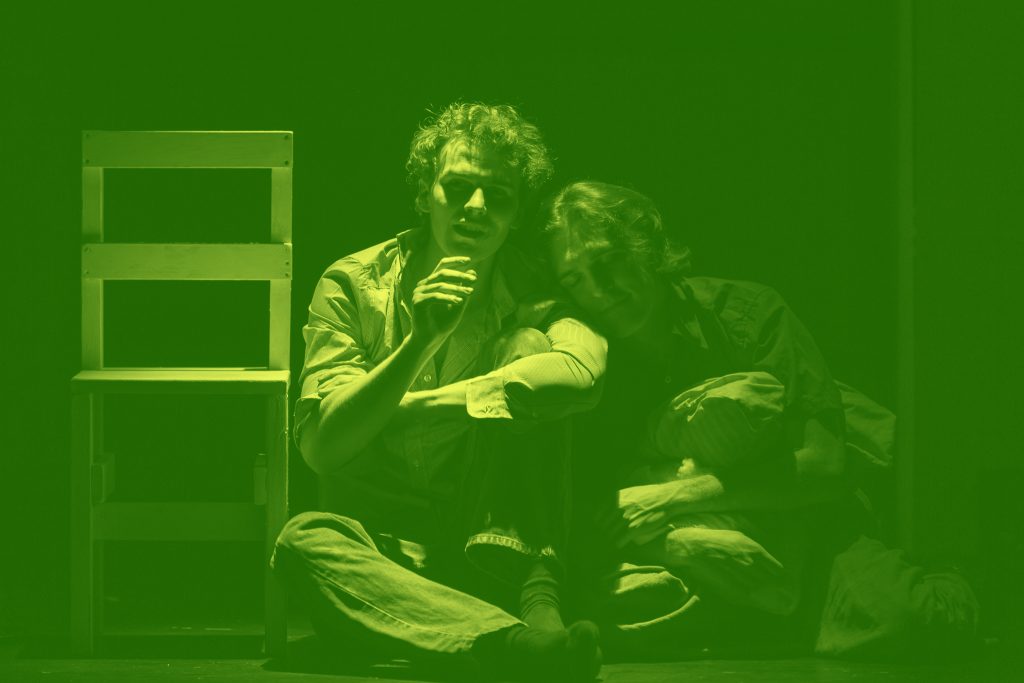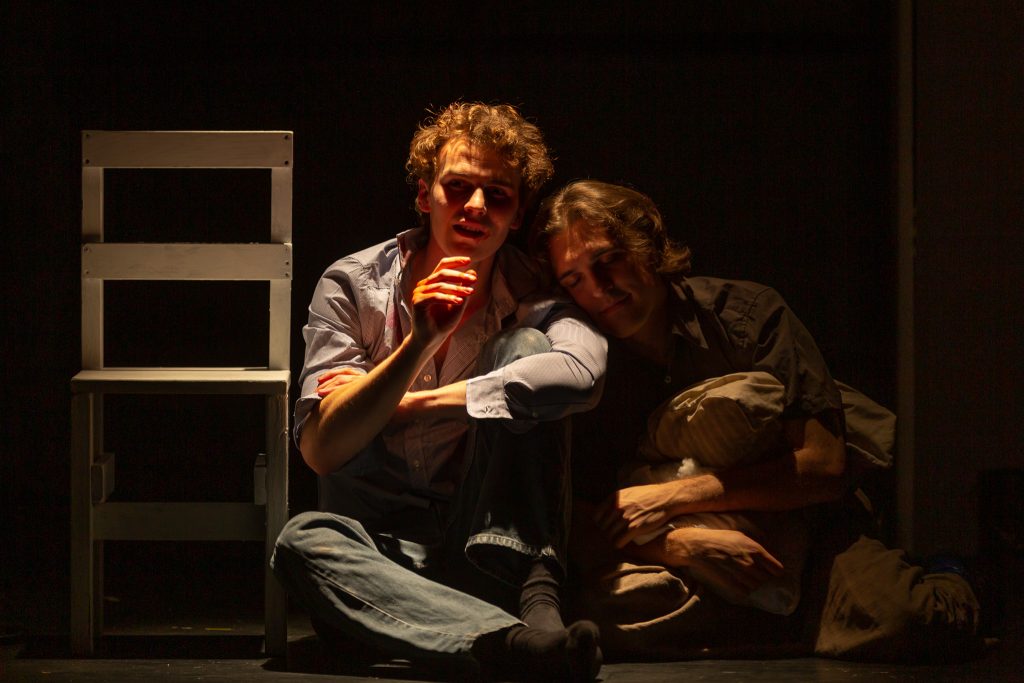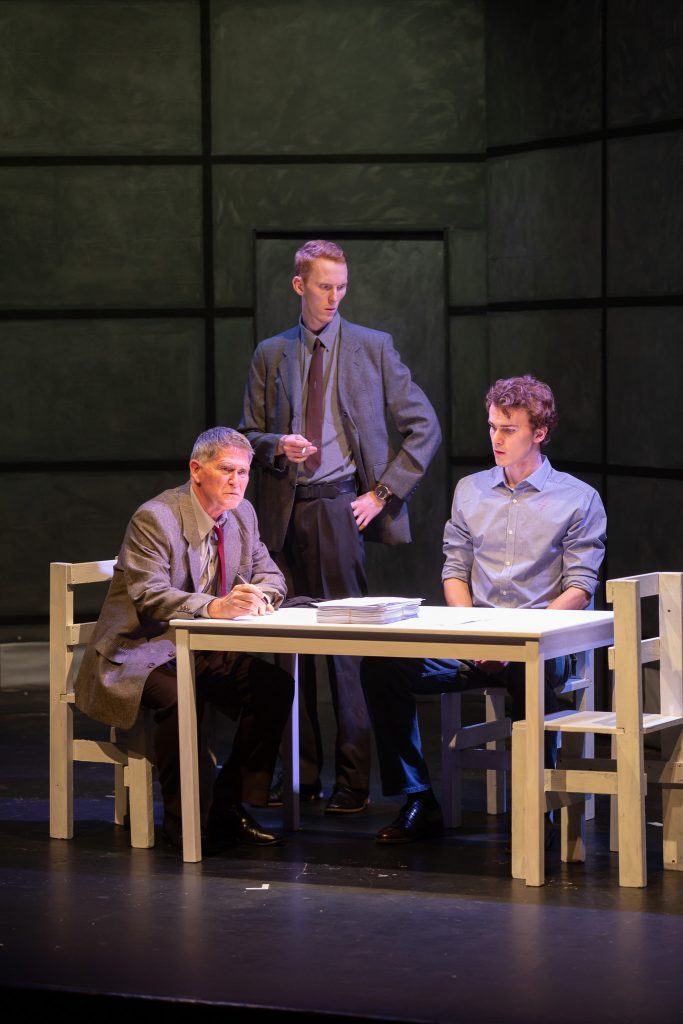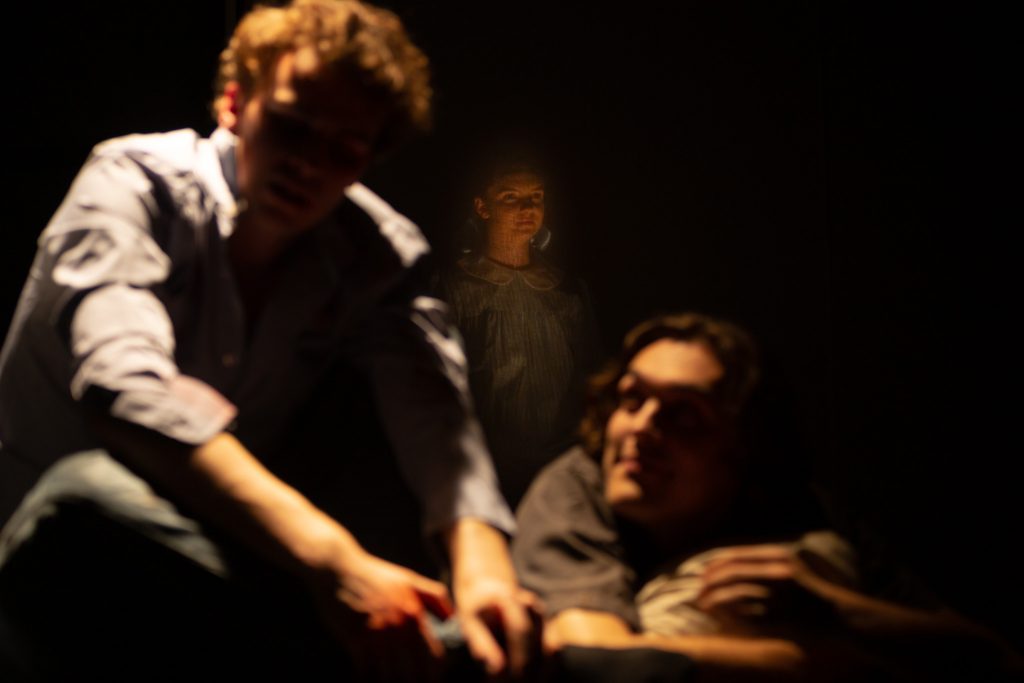
‘The Pillowman’ // Brisbane Arts Theatre
‘The Pillowman’ was confronting.
Taking fictional children’s stories and turning them completely on their heads, Brisbane Arts Theatre have confidently presented a notoriously dark comedy, which is rich in powerful storytelling. Fusing puppetry work, shadow play and witty dialogue into one, ‘The Pillowman’ has quickly cemented itself as a dynamic piece of macabre theatre.
Written by acclaimed Irish playwright, Martin McDonagh, the text is wickedly delicious and full of inappropriate jokes, quick quips and challenging comedic jests. The content, although confrontational and extremely dark, depicts an insane balance between right and wrong; leaving audiences questioning their own moral integrity.
The plot centres on a writer named Katurian who is taken into questioning by two policemen after some local murders bare an uncanny resemblance to his own disturbing stories and imaginings. We learn his brother, Michal, has confessed to such murders, implicating Katurian in his attempts. From here we relive childhood memories and explore themes of trauma, control and the human condition.
Director, John Boyce, has served a tightly weaved production on a minimalistic, futuristic-looking set, designed by Kiel Gailer. Set in a totalitarian state, time and place are neither depicted nor warranted. Action ping-ponged from left to right transitioning between action and narrative and Boyce handled the interlocking stories with ease, moving scenes of fiction and non-fiction smoothly.
During peaks within the storytelling, Boyce opted for a variety of techniques to act out these visualisations. One of the standout scenes was during ‘The Tale of the Town on the River’ where a magnetic puppetry display was conducted by an ensemble actor. It was cleverly and craftily orchestrated.
Facilitating other narratives, Boyce used shadowed reflections with actors behind a scrim and projected lighting. It was wonderfully executed and added another dimension into this dark world. Although this spectral style seemed to be a theme for the show, especially when narrating stories, it was confusing when the consistency was lost during the tale of ‘The Little Green Pig’. This story played simply on stage, unlike others, and could have really hit harder with some action to assist the prose.
As detective Tupolski, Alex Lanham, delivered a varied performance that was quick to captivate. Easily sucking audiences into absurd circumstances, Lanham was commanding and confident – something one can expect from an actor of his calibre. Playing opposite him as the bad-cop Ariel, Connor Clarke had heightened levels of aggression and adopted the bad attitude needed for his temperamental character. At times, Clarke’s physical presence lacked naturalness. His performance could have benefited from more exploration into light and shades found within the text. Clarke and Lanham had good chemistry on stage regardless.
As the intense writer Katurian, William Toft was a standout within the play, especially during his moments of storytelling. These scenes felt so incredibly real and naturalistic and were aided immensely by Toft’s ability to build tension within a scene. His earnest portrayal of desperation was balanced by a nuance that Toft brought to his performance. This combined to help sell twists in the story that the audience didn’t see coming.
Playing Toft’s abused brother Michal, Reagan Warner was contrastingly nimble and jovial – although the hard stage made his movement feel awkward at times. As a character traumatised from an early age, Warner handled the role with aplomb. Looking the part, he had his hair neatly pushed behind both ears and an endearing personality that would melt butter. There was an opportunity to tip-toe more into the sinister parts of Michal’s personality, but Warner was solid in a role that landed in both compassion and revulsion.
Rounding out the rest of the cast, an ensemble of capable actors, including Claire Argente, Oliver Catton and Jordan Boyd, brought to life the dark fairy-tales. Collectively, they were were sharp, active and beneficial to the storytelling. With minimal lines, they helped navigate our way through stories featuring an array of traumatic events and made the horrific parts of each impact on audience members.
For the audience, it was hard to digest the content within ‘The Pillowman’ as the story is technically a modern fairytale with no happy ending. It’s easy to be left feeling unsure whether you should laugh or cry, but the nature of the script incites an absurd approach to theatre. Crossing the boundaries of reality and fantasy, Brisbane Arts Theatre have chosen a thought-provoking work that brings a lot of entertainment.
‘The Pillowman’ stuns audiences until Saturday, 8 June 2019. For tickets, visit https://www.artstheatre.com.au/pillowman









